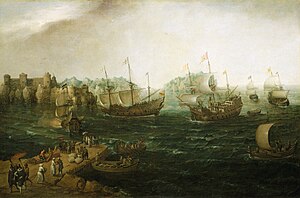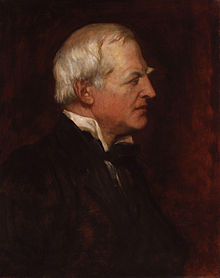History of company law in the United Kingdom
As England sought to build a mercantile Empire, the government created corporations under a Royal Charter or an Act of Parliament with the grant of a monopoly over a specified territory.
The South Sea Company's monopoly rights were backed by the Treaty of Utrecht, signed in 1713 as a settlement following the War of Spanish Succession, which gave the United Kingdom an assiento to supply slaves and engage in limited trade in other goods in the region for a period of thirty years.
The trading started slowly and was in any case limited in extent by the terms of the assiento,[1] but it was hoped that it would lead to breaking into the traditionally closed Spanish markets in America.
Even in 1776, Adam Smith wrote in The Wealth of Nations that mass corporate activity could not match private entrepreneurship, because people in charge of others' money would not exercise as much care as they would with their own.
Like the stewards of a rich man, they are apt to consider attention to small matters as not for their master's honour, and very easily give themselves a dispensation from having it.
It is upon this account, that joint-stock companies for foreign trade have seldom been able to maintain the competition against private adventurers.By the 1820s the Industrial Revolution had gathered pace, pressing for legal change to facilitate business activity.
The advantage of establishing a company as a separate legal person was mainly administrative, as a unified entity under which the rights and duties of all investors and managers could be channeled.
In 1977, the government's Bullock Report proposed reform to allow employees to participate in selecting the board of directors, as was happening in across Europe, exemplified by the German Codetermination Act 1976.


